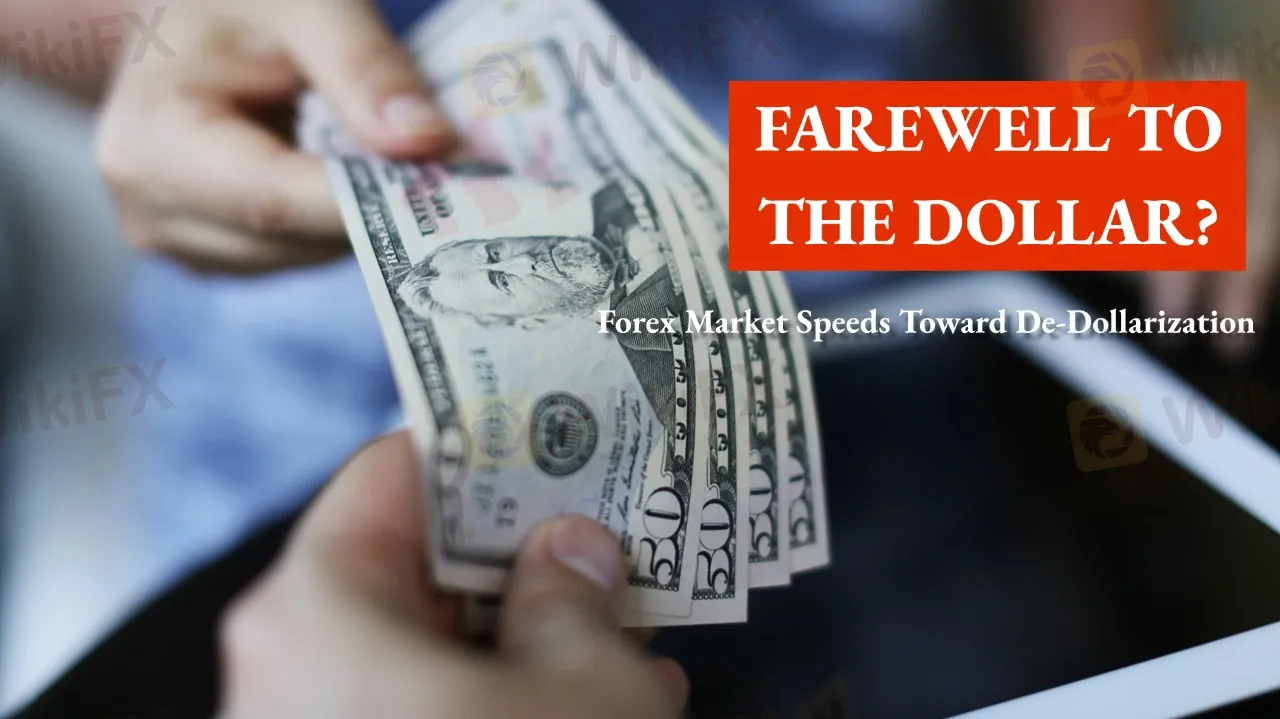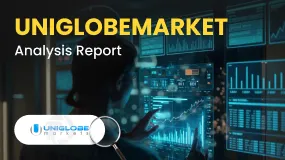Inside the Elite Committee: Talk with Tom
Join forex expert Tom as he shares his journey, trading wisdom, and thoughts on AI and the future of forex in WikiFX’s inspiring “Inside the Elite” interview.
简体中文
繁體中文
English
Pусский
日本語
ภาษาไทย
Tiếng Việt
Bahasa Indonesia
Español
हिन्दी
Filippiiniläinen
Français
Deutsch
Português
Türkçe
한국어
العربية
Abstract:The dollar is losing its dominance? The forex market is witnessing a rapid shift toward de-dollarization, sparking serious investor attention.

Recently, the U.S. dollar has been under significant selling pressure in the forex market. Not only has it weakened against major currencies, but U.S. assets across the board—stocks, bonds, and the dollar itself—are facing simultaneous outflows.
Unlike typical crises where investors rush to hold dollars and U.S. Treasuries, the current trend shows them actively avoiding U.S. assets. This signals a potential erosion of long-held confidence in the dollar as a safe haven.
Analysts from Deutsche Bank point out that the dollar is facing an unprecedented trust issue. On one hand, global demand for dollar-denominated assets is shrinking.
On the other, rising trade tensions with major economies have brought currency issues into the spotlight, further undermining market confidence.
What's more, concerns about the political use of dollar liquidity are prompting central banks and investors worldwide to reduce their reliance on the dollar. This de-dollarization trend is no longer theoretical—its accelerating in real time.
Official institutions are considering cutting back on U.S. Treasuries, and global contracts are increasingly shifting away from being dollar-denominated.
In this shifting environment, forex investors need to sharpen their risk radar. Diversifying away from dollar exposure is becoming a prudent strategy. Currencies like the euro, yen, and even the yuan are gaining attention as potential alternatives.
At the same time, traditional safe-haven assets like gold may see renewed demand, especially as concerns over global liquidity risks intensify.
Investors should also prepare for heightened volatility. Short-term trading strategies must be more sensitive to event-driven movements and policy signals. In the long term, it remains to be seen whether the dollar will lose its global dominance—but the current momentum toward de-dollarization is undeniable, and investors cant afford to ignore it.

Disclaimer:
The views in this article only represent the author's personal views, and do not constitute investment advice on this platform. This platform does not guarantee the accuracy, completeness and timeliness of the information in the article, and will not be liable for any loss caused by the use of or reliance on the information in the article.

Join forex expert Tom as he shares his journey, trading wisdom, and thoughts on AI and the future of forex in WikiFX’s inspiring “Inside the Elite” interview.

Ho Chi Minh City, Vietnam – The WikiFX Elite Club recently concluded a successful offline pickleball networking event, “Elite Gathering Day · Vietnam: Rally for Connection, Rally for Healthy Development.” The event drew over 50 local industry participants, including prominent Introducing Brokers (IBs), Key Opinion Leaders (KOLs), and representatives from multiple trading firms. This unique gathering seamlessly blended sporting energy with high-value professional networking.

WikiFX is launching the "Safe Trade with WikiFX" exclusive interview series, featuring members of the WikiFX Elite Club. This series delivers in-depth industry insights on trading safety, the establishment of industry standards, and regional market dynamics, aiming to foster deeper understanding of local markets and jointly advance transparency across the industry.

UNIGLOBEMARKET presents a mixed picture that demands careful consideration from prospective traders, earning an overall rating of 5.5 out of 10 with a "Use with Caution" designation. Based on 55 trader reviews, the broker shows a concerning 40% negative rate, though it's worth noting that positive reviews still outnumber negative ones with 31 favorable assessments compared to 22 unfavorable ones. Read on for an insightful review.
